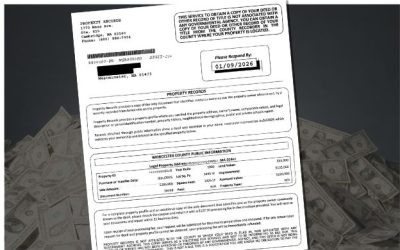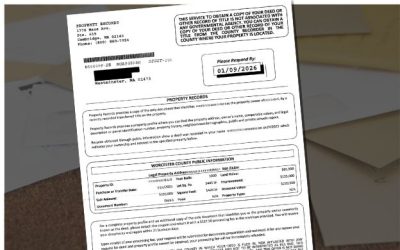
Oct 14, 2025 | Mortgage Rates, Mortgage Tips
The answer depends on several interconnected forces: inflation trends, Fed policy decisions, bond market activity, and overall economic strength. Understanding how these factors work together can help Massachusetts homebuyers and sellers make informed decisions before closing day.
Inflation remains the leading driver behind mortgage rate movements. If inflation continues to cool, borrowing costs are likely to ease further — but any unexpected rise could stall or reverse that progress.
According to Fannie Mae, if inflation spikes again due to energy costs, wage growth, or global tensions, the Fed could delay additional rate cuts, keeping mortgage rates higher for longer.
Inflation directly affects loan affordability. Lenders adjust long-term interest rates to offset inflation risk, which means pre-approval numbers can shift quickly. Buyers should stay in contact with both their lender and closing attorney to prevent last-minute surprises in loan terms or payment estimates.
2. Federal Reserve Policy and Rate Cuts
While the Federal Reserve doesn’t set mortgage rates directly, its benchmark rate influences how much banks charge to lend money. If the Fed begins cutting rates in early 2026, mortgage rates could follow — potentially opening a short-term opportunity for lower borrowing costs.
Economic projections from Bankrate suggest rates may hover around 6% through 2026, depending on the pace of these cuts.
If you’re under contract during a policy shift, it’s essential to review your rate-lock agreement with your attorney. Adjustments to contract timelines or extensions can prevent financing complications if the market shifts unexpectedly before closing.
3. Treasury Yields and Bond Market Volatility
Mortgage rates generally follow the 10-year U.S. Treasury yield, which reflects investor confidence in the economy. When investors move toward safer assets, yields fall — and mortgage rates often decline shortly after.
However, market volatility can push yields up quickly. According to Wells Fargo, mortgage rates are unlikely to fall dramatically in the short term due to continued uncertainty in bond markets.
Even when markets fluctuate, closing deadlines remain fixed. Your attorney ensures financing commitments, loan documents, and escrow transfers stay aligned so market swings don’t derail your closing.
4. Economic Growth and Labor Market Strength
Mortgage rates also reflect the overall health of the U.S. economy. A robust job market and steady GDP growth tend to keep rates elevated because lenders anticipate continued demand for credit.
Conversely, if growth slows, the Fed may act more aggressively to lower rates. Analysts at Norada Real Estate expect gradual rate declines into 2026 as the economy cools.
During times of uncertainty, lenders may tighten underwriting requirements. Having a qualified real estate attorney ensures all documentation — from income verification to title clearance — is prepared and submitted correctly to avoid preventable delays.
Staying Ready in an Uncertain Market
Analysts predict that 30-year fixed mortgage rates will range between 6.2% and 6.6% this winter, with gradual improvement throughout 2026. Perfectly timing the market is nearly impossible, but preparation can make a major difference.
Whether you’re buying, selling, or refinancing, an experienced attorney helps safeguard your transaction. From rate-lock coordination to closing documentation, The Law Office of David R. Rocheford, Jr., P.C. ensures your real estate deal stays on track — no matter what direction the market moves next.
Providing title, escrow, closing and settlement services to clients throughout Massachusetts and New Hampshire

Jun 19, 2025 | Around The Home, Around The Hoome, Artificial intelligence, Buying Real Estate, Chapter 7 Bankruptcy, Consumer Tips, Credit Scoring, Fair Housing, Federal Reserve, FHFA, Financial Crisis, Financial Fraud, Financial Reports, Foreclosure, Happy Thanksgiving, Holidays, Home Building Tips, Home Buyer Tips, Home Buying Tips, Home Care, Home Care Tips, Home Closings, Home Decorating, Home Financing Tips, Home Maintenance, Home Mortgage, Home Mortgage Tips, Home Seller Tips, Home Selling Tips, Home Tips, Home Values, Homebuyer Tips, Homeowner Tips, Housing Analysis, Housing Market, Interesting Stuff, Investment Properties, Legislation, Market Outlook, Mortagage Tips, Mortgage, Mortgage Guidelines, Mortgage Lenders, Mortgage Rates, Mortgage Tips, mortgage-rates-whats-ahead-september-17-2012, News, Organization Tips, Personal Finance, Probate Law, Rankings, Real Estate, Real Estate Agent Information, Real Estate Definitions, Real Estate Tips, Real Estate Trends, Realtors, Selling Real Estate, Selling Your Home, Short Sales, Statistics, Success, Taxes, The Economy, Title Insurance
Whether you’re buying with cash, investing from abroad, transferring property to a family member, or just trying to close without a headache, you’ll want to know what can trigger federal scrutiny — and how to stay off the radar.
From flagged wire transfers and shell companies to gift-of-equity sales and land near military zones, this isn’t your average title-and-keys situation.
It’s real estate with a side of national security, tax enforcement, and financial crime prevention.
Is Big Brother Watching Your Home Sale?
What Buyers and Sellers Should Know About Federal Oversight
You’re Not Paranoid — They Might Actually Be Watching
What you didn’t know on how federal agencies keep tabs on select real estate transactions.
Your Closing Packet Could Be a Federal File
How Your Paper Trail Might Raise Red Flags — And What You Can Do About It
What the FBI, IRS, and Homeland Security
Could See in Your Closing Docs
We’re unpacking what agencies might spot inside your deal’s fine print.
Caught in the Crosshairs? What Triggers Federal Interest in Your Home Sale
The Top Red Flags That Could Invite a Closer Look from Washington
Cash, LLCs, or Land Near a Base? You Might Just Be a Target
The warning signs that put your deal on the government’s radar — and how to stay clear.
Follow the Money: How the IRS Tracks Financial Crimes Through Real Estate
From Unreported Income to Shell Game Schemes
— What IRS-CI Is Looking For
Your Closing Could Be an Audit Trigger — Here’s How the IRS Sees It
Explore the patterns, documents, and loopholes that turn ordinary deals into criminal cases.
Providing title, escrow, closing and settlement services to clients throughout Massachusetts and New Hampshire
“As a realtor, the Rocheford team went above and beyond to make sure my client was not only protected from a legal standpoint but also operated in a timely manner to execute the sale of my client’s dream home.
Thank you for the great experience for myself and my client! Looking forward to our next deal together!”
Realtor®
“I don’t usually use attorneys that often. But if an attorney is needed, I couldn’t recommend this law office enough. I always pride myself on responding quickly to emails and calls, but I was in awe of how fast paralegal Robert Heckman would respond to us. We sold our house a couple months ago and then did a two-part land swap with neighbors and my folks, and both transactions were seamless, including coming in to sign paperwork.
In short, if you need a law office that is responsive and attentive to detail, definitely consider them!”
Leominster, MA
“Excellent, conscientious and professional.
The communication throughout our Real Estate transaction was better than expected. We thought the fee to be very reasonable considering the work accomplished on our behalf. The law office handled the entire closing without us having to be in attendance….as we requested. I have had experience with very competent lawyers and law firms as the result of my previous profession. I would place this law office right up there among the best in their real estate field of expertise and surprisingly at very reasonable and affordable rates/fees.”
Buzzards Bay, MA
Oct 30, 2023 | Financial Reports, Mortgage Rates, Real Estate
 As a mortgage officer, you understand the importance of staying proactive to build your business. In the mortgage industry, downtime can be an excellent opportunity to lay the groundwork for future success. With the right strategies, you can ensure that your pipeline remains strong, and your business continues to grow. In this blog post, we’ll explore five ideas to help mortgage officers make the most of their time and build their business effectively.
As a mortgage officer, you understand the importance of staying proactive to build your business. In the mortgage industry, downtime can be an excellent opportunity to lay the groundwork for future success. With the right strategies, you can ensure that your pipeline remains strong, and your business continues to grow. In this blog post, we’ll explore five ideas to help mortgage officers make the most of their time and build their business effectively.
1. Strengthen Your Online Presence
In today’s digital age, your online presence is vital to attracting and retaining clients. Use your downtime to enhance your website, create engaging social media profiles, and share valuable content related to mortgages and real estate. Regularly updating your website with useful information, blog posts, and client testimonials can help you establish credibility and trust with potential clients.
2. Expand Your Network
Building strong relationships is a cornerstone of success in the mortgage industry. Use your free time to expand your network by attending industry events, joining local business groups, and participating in online forums or social media groups related to real estate and mortgages. Networking can lead to valuable referrals and partnerships that will boost your business.
3. Refine Your Customer Relationship Management (CRM) System
An efficient CRM system can help you keep track of your clients and potential leads. Take the time to evaluate your current CRM system, and if needed, invest in a more robust and user-friendly one. Ensure that you have a system in place for staying in touch with past clients, sending out regular updates, and offering valuable resources.
4. Offer Educational Workshops and Webinars
Hosting educational workshops or webinars is an excellent way to establish yourself as an expert in the mortgage field. These events can cover topics such as the mortgage application process, understanding interest rates, or tips for first-time homebuyers. By providing valuable information, you can attract new clients and strengthen your relationships with existing ones.
While downtime in the mortgage industry can be frustrating, it’s also an excellent opportunity to work on building your business for the future. By strengthening your online presence, expanding your network, improving your CRM system, and offering educational workshops, you can ensure that your business remains strong and continues to grow. With dedication and the right strategies, you can maximize your productivity during slower periods and set the stage for long-term success in the mortgage industry.
Aug 15, 2019 | Home Financing Tips, Homeowner Tips, Mortgage Rates, Mortgage Tips
By Karla Lopez
Refinancing a mortgage means you are replacing your existing mortgage or mortgages with a new one that has different, and hopefully, better terms. This new mortgage will pay off your old mortgage loan, and then you become responsible for paying it off. But the question is, when exactly should you do it?
The straightforward answer is whenever you can save money on your current mortgage through refinancing; it’s worth exploring all year-round. Although the old rule of thumb says refinancing is useful if you can get at least one or two percent reduction on the interest rate you’re paying. But, it’s no longer the case now.
Here are the situations when refinancing makes sense.
Mortgage Rates are Going Down
A mortgage is subject to fluctuation because it can be affected by a variety of factors such as market movements, Debt statistics, inflation, U.S. Federal Reserve monetary policy, the economy, and global factors.
Once the mortgage rates nosedive, you’ll be able to save by securing an interest rate that’s lower than what your current loan has. This maneuver is called rate-and-term refinancing wherein you refinance your mortgage for one that usually has the same remaining term but with a lower interest rate.
Again, the traditional rule has it that it’s best to refinance if your rate is one or two percent lower than your existing rate. But in reality, every borrower has different needs and financial goals. A one percent interest rate less may help you save on a $2 million mortgage. However, it’s not going to do much for a $200,000 mortgage.
There are other costs that come with refinancing that are crucial whenever you decide to go its route.
Another situation wherein refinancing can be a good option is when interest rates are anticipated to fall continuously, and you have a fixed-rate mortgage. In such a case, you might consider turning to ARM (Adjustable-Rate Mortgage.)
With an ARM, the interest rate will change over time, typically in relation to an index, which makes it possible for your payments to go up and down. It will make more sense to convert to an ARM if you plan to move in a few years. It owes to the fact that you’re going to forgo the safety of a fixed-rate loan.
Take note also that your ARM will go up too if interest rates increase. Additionally, the initial rate you acquire with an ARM will be effective for a limited period which could range from one month up to five years or more.
The Value of Your Home Increases
Refinancing could be your lifeline if your home’s value has gone up, particularly if you’re still paying off other high-interest debts.
When you refinance, you get to take a new loan that’s bigger than your previous one. You will use this new mortgage to settle the first loan, then you’ll get the difference in cash. This system makes it an excellent alternative to a home equity loan.
For example, you took a $160,000 mortgage five years ago for a house worth $200,000 house. You also put a $40,000 down payment. After a series of regular payments, your debt on a mortgage has now reduced to $100,000. When the property market skyrockets, so do your home whose value now amounts to $250,000.
Since your home is more valuable, you can now refinance for more than $100,000, which is the current balance of your mortgage. If you can refinance for, say, $150,000, you can take home the $50,000 in cash and use it to pay your other debts or other expenditures like home improvement and so on.
It’s vital in every refinancing option to make sure that you will use the money wisely and not get into unsustainable debt. Take heed that it’s part of a loan, so need to repay it and the rest of your mortgage loan.
Further, be sure that you will not end up paying more in mortgage interest than the interest you will pay on any debt.
Your credit score is an essential factor in calculating your mortgage rate. Rules have it that you’ll get a lower interest rate if you have a good to excellent credit score.
For instance, if your FICO credit score lies within 660 up to 679 range and you have a 30-year fixed-rate mortgage of $150,000, you’ll pay 3.998% APR as per the myFICO Loan Savings Calculator (interest rate as of August 2019).
With this interest rate, you’ll pay $716 per month and $107,742 for the total interest to be paid for 30 years.
Now if your credit score is playing somewhere between 700 to 759 range, your estimated monthly payment will drop to $683. You could save $12,021 in interest over the life of the loan.
You Have an Adjustable-Rate Mortgage and Mortgage Rates Rise
If you currently have an ARM and If mortgage rates are increasing, you might want to convert to a fixed-rate mortgage or better yet, consider refinancing.
With an ARM, your rate will increase more than what you will pay with a fixed-rate mortgage. If you’re conscious about possible interest rate hikes in the future, converting to a fixed-rate mortgage or turning to refinance can give you some peace of mind.
Refinancing a mortgage will depend on several factors such as the current interest rates, the length of time you plan to live in your home, how long it will take for you to recuperate your closing costs, to name a few. Further, refinancing can be a wise decision if you do it when the situations mentioned above are at your disposal.
Providing title, escrow, closing and settlement services to clients throughout Massachusetts and New Hampshire
“I would highly recommend David as a closing attorney. I have known David and have been using his office for many years. David’s professionalism when dealing with me, my closing department and most especially my clients has been always exemplary.”
SENIOR LOAN OFFICER, SHAMROCK FINANCIAL SERVICES
“The Law Office of Attorney David R. Rocheford, Jr. is by far the most exceptional real estate law office that I have had the pleasure of working with. The professionalism is by far second to none.”
SENIOR LOAN OFFICER, SALEM FIVE MORTGAGE SERVICES
“Attorney David Rocheford has provided settlement and title services for me and Greenpark Mortgage several years. He has assisted all of my clients, including my family and friends with mortgage closings. Always providing excellent service. Reliable and trustworthy!”
Jan 29, 2018 | Mortgage Rates
 Last week’s economic news included releases on new and existing home sales along with weekly readings on mortgage rates and first-time jobless claims.
Last week’s economic news included releases on new and existing home sales along with weekly readings on mortgage rates and first-time jobless claims.
Home Sales Fall Due to Slim Supply of Homes
December sales of previously-owned homes dipped to an 18-year low with a reading of 5.57 million sales on a seasonally-adjusted annual basis. Pre-owned home sales were expected to reach 5.73 million homes based on November’s downwardly- revised reading of 5.78 million sales. December sales were 3.6 percent lower month-to-month, but were 1.10 percent higher year-over-year.
Analysts credited the shortage of sales to tight inventories of homes for sale. Low inventories of homes for sale have worsened, a situation that sidelines would-be buyers due to the slim selection of homes, rapidly rising prices and buyer competition.
Lawrence Yun, Chief Economist of the National Association of Realtors, said that December sales were lower in all four regions tracked by his organization. The Northeast had 7.50 percent fewer sales; The Midwestern region has 6.30 percent fewer sales in December and the South and West had 1.70 percent and 1.60 percent fewer sales.
Available homes reached a 3.20-month supply; the National Association of Realtors typically views a six-month supply of available homes as average. The national median home price was $246,800 in December and was 5.80 percent higher year-over-year.
Sales of new homes were also significantly lower in December, at an annual rate of 625,000 sales. Analysts expected 679,000 sales and November’s reading showed a sales pace of 689,000 sales.
New Home Sales Fall in December
Sales of new homes were lower in December but were strong overall for 2017. The Commerce Department reported 625,000 sales of new homes for December as compared to expectations of 680,000 sales and November’s downwardly revised reading of 689,000 sales of new homes.
The annual sales pace of new homes was 9.30 percent lower in December than in November, but the sales price of new homes increased 14.10 percent year-over-year. The median price of a new home was $335,400, which was 2.50 percent higher year over year. A 5.6 month supply of new homes for sale reflected healthy market conditions for new homes.
Mortgage Rate, New Jobless Claims Higher
Mortgage rates rose for the third consecutive week with the average rate for a 30-year fixed rate mortgage 11 basis points higher at 4.15 percent; the average rate for a 15-year fixed rate mortgage was 3.62 percent and was 13 basis points higher. 5/1 adjustable rate mortgages averaged 3.52 percent and rose by six basis points. Discount points averaged 0.50 percent for fixed rate mortgages and 0.40 percent for 5/1 adjustable rate mortgages. Higher mortgage rates were attributed to an increase in the 10-year Treasury yield, which was at its highest rate since 2014.
First-time jobless claims rose last week after reaching a 45-year low the previous week. 233,000 new claims were filed last week; analysts expected a reading of 240,000 new claims filed against the previous week’s reading of 216,000 new jobless claims filed. Bad weather, two holidays in January and seasonal layoffs at the end of the holiday shopping season contributed to the increase in new jobless claims.
What‘s Ahead
This week’s scheduled economic reports include readings from Case-Shiller Home Price Indexes, homeownership rates, and inflation. The Bureau of Labor Statistics will release monthly reports on private and public-sector jobs and the national unemployment rate. Weekly readings on mortgage rates and first-time jobless claims will also be released.
Jan 22, 2018 | Mortgage Rates
 Last week’s economic news included readings on home builder confidence, housing starts and building permits issued. Weekly readings on mortgage rates and new jobless claims were also released; the week wrapped with the University of Michigan’s report on consumer sentiment.
Last week’s economic news included readings on home builder confidence, housing starts and building permits issued. Weekly readings on mortgage rates and new jobless claims were also released; the week wrapped with the University of Michigan’s report on consumer sentiment.
Home Builder Confidence Dips, Remains in Positive Territory
According to the National Association of Home Builders, builder confidence dropped two points in January to 72, but high demand for homes continued to provide builders with positive outlooks on housing market conditions. While continued concerns over labor and lot shortages were cited, home builders surveyed for January’s Housing Market Index said that High demand for homes and recent tax legislation kept more builders confident than those who were not. Any reading over 50 indicates positive builder sentiment.
Housing Starts, Building Permits Fall in December
Housing starts fell 8.20 percent in December according to the Commerce Department. 1.192 million starts were forecast on a seasonally- adjusted annual basis; analysts expected a reading of 1.280 million starts based on November’s reading of 1.299 million starts. 1.302 million building permits were issued in December on a seasonally-adjusted annual basis. November’s reading was higher at 1.303 million building permits issued.
Mortgage Rates Rise, New Jobless Claims
Freddie Mac reported higher mortgage rates for the second week in a row. The average rate for a 30-year fixed rate mortgage rose five basis points to 4.04 percent; the average rate for a 15-year fixed rate mortgage rose five basis points to 3.49 percent and the average rate for a 5/1 adjustable rate mortgage was unchanged at 3.46 percent. Discount points averaged 0.60 percent for 30-year fixed rate mortgages and 0.50 percent for 15-year fixed rate mortgages. Discount points averaged 0.30 percent for 5/1 adjustable rate mortgages.
New jobless claims were lower with 220,000 new claims filed as compared to estimates of 250,000 new claims. 261,000 new claims were filed the prior week. Consumer sentiment was lower in January with an index reading of 94.40. Analysts expected the consumer sentiment index to reach 98.00, based on December’s reading of 95.90 percent, but uncertainty over tax benefits connected with recent legislation and rising interest rates contributed to the lowest consumer sentiment index reading since July.
What‘s Ahead
This week’s scheduled economic reports include readings on new and existing home sales along with weekly readings on mortgage rates and first-time jobless claims.














 As a mortgage officer, you understand the importance of staying proactive to build your business. In the mortgage industry, downtime can be an excellent opportunity to lay the groundwork for future success. With the right strategies, you can ensure that your pipeline remains strong, and your business continues to grow. In this blog post, we’ll explore five ideas to help mortgage officers make the most of their time and build their business effectively.
As a mortgage officer, you understand the importance of staying proactive to build your business. In the mortgage industry, downtime can be an excellent opportunity to lay the groundwork for future success. With the right strategies, you can ensure that your pipeline remains strong, and your business continues to grow. In this blog post, we’ll explore five ideas to help mortgage officers make the most of their time and build their business effectively.



 Last week’s economic news included releases on new and existing home sales along with weekly readings on mortgage rates and first-time jobless claims.
Last week’s economic news included releases on new and existing home sales along with weekly readings on mortgage rates and first-time jobless claims. Last week’s economic news included readings on home builder confidence, housing starts and building permits issued. Weekly readings on mortgage rates and new jobless claims were also released; the week wrapped with the University of Michigan’s report on consumer sentiment.
Last week’s economic news included readings on home builder confidence, housing starts and building permits issued. Weekly readings on mortgage rates and new jobless claims were also released; the week wrapped with the University of Michigan’s report on consumer sentiment.